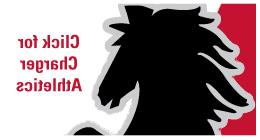Many people are surprised to learn that many new jobs are created each year for people with a math degree. But it makes sense when you realize the demand for math majors has grown because of the increasing importance of data. So, if you love numbers, there’s never been a better time to get a mathematics degree.
At Dominican University, we understand that employers don’t just want math skills, though. They want well-rounded graduates with great soft skills and a good grounding in their industry. So, whether you choose to do a math minor or major in mathematics, we’ll make sure you get a highly marketable liberal arts training and build those in-demand soft skills, too.
We offer several specializations to suit your career goals. For instance, you can concentrate on subjects that will prepare you for working with businesses or to teach primary or secondary school math. And we’ll give you lots of opportunities to put your studies into practice in areas that you’re interested in. For example, are you interested in forensics? You can study the mathematics of blood splatter analysis. A budding baseball pitcher? You can do a project investigating the mathematics of your pitch. Love biology? Why not study the connection between Knot Theory and biology?
The possibilities are endless.
We’ve built a really enjoyable and engaging math degree, but of course, going to a university isn’t just about academics, so we’ve made sure you’ll get the support you need to succeed with your studies while also having heaps of fun along the way. If you choose Dominican University, you’ll have the opportunity to join any of a wide range of clubs, really flex your athletic muscles, and take advantage of everything the nearby New York has to offer.
With a math degree, you could become anything from a primary school teacher to an actuary. And at Dominican University, you’ll have a great university experience while you earn your math degree.
A robust, job-ready math degree to prepare you for a diverse range of careers
- Detailed program information
- Customized scholarship and financial aid offers
- Personal support from an admissions counselor
Request Information
A robust, job-ready math degree to prepare you for a diverse range of careers
The Dominican Difference
My time in the program has been both rewarding and gratifying. The program, which is favorable for nurses who are balancing both professional and personal commitments, allows students to plan their schedule easily. The professors are all practicing NPs who bring both their expertise and wisdom to the classroom every day and challenge students in a supportive and enriching environment.
Marlene Veselsky, RN, BSN FNP Graduate ’14
15,000
Alumni
76
Full-time Faculty
17
Miles from NYC
100% of First-Time,
Full-Time Freshman Receive Financial Aid
Job Opportunities
So many people think of a math degree as being purely academic. But you don’t have to aspire to be a math professor to benefit from a math degree. Some of the most popular career choices of math graduates include primary and secondary education, banking, construction management, insurance, business management, pension analysis, research management, engineering, and computer.
What You’ll Learn
No matter which of the math programs you choose, or whether you pursue a math major or a minor in mathematics, you’ll get a broad-based liberal arts education and expand your understanding of core mathematics concepts like calculus, algebra, and statistics. You’ll also dive deeper into the kinds of math that most interest you. For instance, you might study economics, computer science, or how to teach math.
Degree Details
Department Staff

Lydia Maynard
Office: (845) 848-6010
Location: Prusmack Center 308
Read Bio
Margaret E. Mulligan
Office: (845) 848-6012
Location: Prusmack Center 308
Read Bio
Jennifer Sassano
Office: (845) 848-6014
Location: Prusmack Center 308
Read Bio
Jovan Žigić
Office: 845-848-6015
Location: Prusmack Center 308
Area(s) of Specialization: Mathematics, Physics, Information Technology







